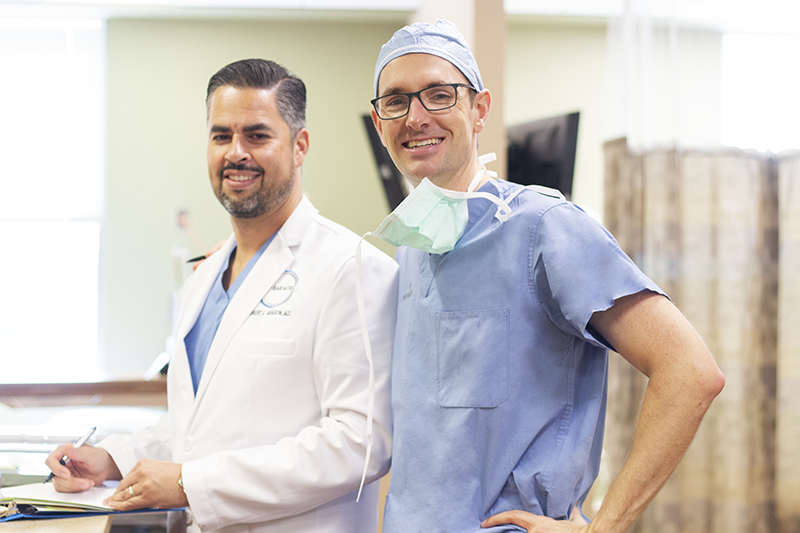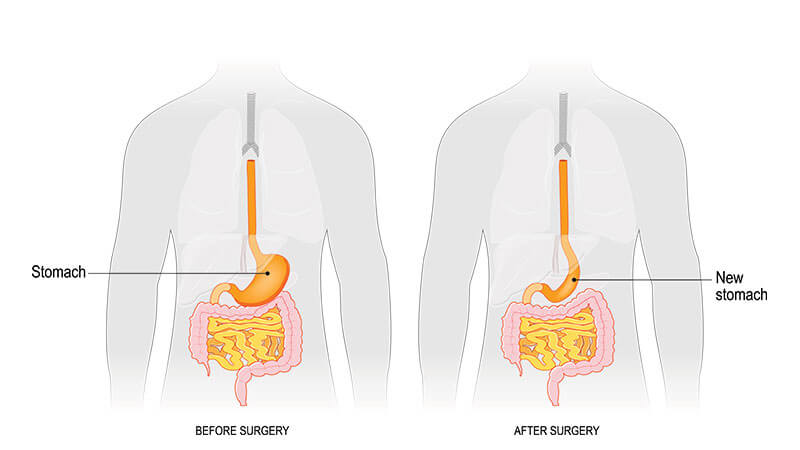Get Your Health Back with Weight Loss Surgery
Laparoscopic Gastric Sleeve
At KC Bariatric, our proficient team is renowned for performing cutting-edge laparoscopic sleeve gastrectomy procedures, meticulously tailored to align with the distinct health goals of each patient.
At KC Bariatric, we are passionately committed to empowering individuals on their transformative journey to wellness and enriched lives through pioneering weight loss surgery. With a remarkable track record of over 20,000 successful procedures, our comprehensive bariatric solutions are meticulously designed to meet individual needs and ensure optimal outcomes. Nestled in the heart of Kansas City, our seasoned team boasts over 50 years of cumulative experience in advanced bariatric surgery, combining cutting-edge technology, proven surgical strategies, and a patient-centered approach to deliver unparalleled care to individuals across the nation. We are steadfast in our mission to inspire hope, health, and happiness, helping our patients redefine their futures.
We Can Help You
If you currently have a laparoscopic band in place and need assistance with band fills or adjustments, we are available to assist you with your band needs.
If you would like more information on the revision process, please email us at info@kcbariatric.com or call 913-677-6319 for more information.

Laparoscopic vertical sleeve gastrectomy is also known as gastric sleeve or the sleeve. During this procedure, a surgeon removes about 2/3s to 3/4s of the stomach. Having a smaller stomach reduces the amount of food you can eat. Patients feel fuller with much less food, thereby consuming fewer calories. This procedure does not reroute or bypass any intestine. The surgeon divides the stomach using surgical staplers and removes the larger stomach portion from the body. The remaining part of the stomach is tubular shaped, about the size and shape of a banana, and is resistant to stretching.

How Gastric Sleeve Surgery Works
This procedure works by several mechanisms. First, the new sleeve stomach holds a considerably smaller volume than the normal stomach. The smaller space helps to significantly reduce the amount of food (and thus calories) that someone can consume. Additionally, the removed portion of the stomach is responsible for producing hormones that cause hunger. Ghrelin is a hormone that is responsible for feelings of hunger. Without ghrelin, the appetite decreases. The effects of the sleeve gastrectomy dramatically reduce the amount you experience physical hunger.
Studies show that the sleeve is nearly as effective as the Roux-en-Y gastric bypass in weight loss and improvement or remission of diabetes. Evidence suggests the sleeve, similar to the gastric bypass, can improve type 2 diabetes independent of weight loss. This sleeve is not reversible, but the benefits to many who have undergone this procedure are numerous. Patients of the KC Bariatric typically lose about 60-70% of their excess weight. Frequently, medical conditions associated with obesity such as diabetes, sleep apnea, high blood pressure, and high cholesterol resolve with significant weight loss.

After Surgery
Laparoscopic sleeve gastrectomy surgery requires an overnight hospital stay. Significant changes to diet and lifestyle are needed to ensure your safety and success. You must continue following the diet and exercise guidelines given to you by the surgeon to lose weight after bariatric surgery. We require some follow-up visits to monitor your progress and evaluate your health after surgery.



